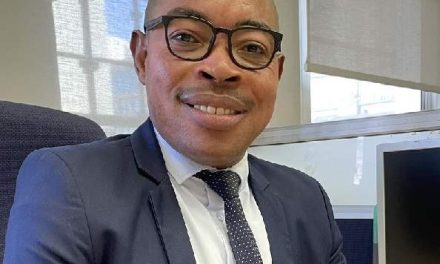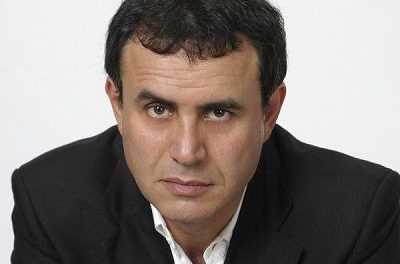
The leaders we need now in the volatile, uncertain, changing and ambiguous world of work

There are numerous articles and blog posts about leaders, leadership and the leadership skills needed in the world of work right now.
When I started my Ph.D. journey, we had no idea that the COVID-19 crisis was lurking around the corner. In the research proposal the question of context and leadership came to the fore. In other words, how does the current environment impact the leader and leadership effectiveness. I wanted to investigate specific questions around issues such as the precariat and uncertain work and how these influence leaders.
Then COVID-19 happened, and the world of work has changed. Nobody knows how this will play out and if we will ever return to some kind of normal. Not too long ago, co-working and shared office space was the trendy thing to do. Now places like WeWork are empty and face an uncertain future as people are encouraged to work from home. For some this is becoming a permanent “new normal”.
Before we discuss and analyse the skills and competencies leaders need for the “new normal” we need to take a look at the environment leaders have to work in at the moment.
In a previous article I described the value of classic research and what we can learn from past theories and research. I had a professor who recommended using models to help you understand phenomena. For example, he recommended that you should consider something like the Big Five model of personality as a baseline for your understanding of personality. From here you can add and subtract facets as your understanding and knowledge grows.
A model that is helpful in understanding the world of work in general and specifically the world of work we face today is the integrated work complexity model described by Maretha Prinsloo.
This model looks at the world of work through two lenses. One is the Operational World of Work and the other is the Strategic World of Work. It is important to understand that in a holonic model such as this there is no hierarchy. In other words, the one world of work is not more important than the other. We need people to function at all levels in the model to have an effective organization.
The model aids in understanding the current COVID-19 world. The operational domain is characterised as an environment that is structured, pragmatic, plenty of detail, a relative short-term focus and a great amount of certainty.
An example of a type of job that is operational in nature is that of a Brain Surgeon. The job of a surgeon is structured to a certain extent. The process of diagnosis and gathering data is structured to a certain extent. Then the job involved a pragmatic or hands-on approach. The surgeon does not delegate the work to a subordinate. This job requires a lot of information and a lot of detail. Finally, the job has a short-term focus where patients have to go for regular check-ups weekly and monthly until the problem is solved and finally the job has a lot of certainty. The patient gets better or not. There is a clear link between the intervention and the result.
All of this means that the world of work where a Brain Surgeon works is operational in nature. This is an important point. Complicated jobs are not necessarily complex. No one can dispute the skill and knowledge required for someone to become a brain surgeon as brain surgery is often seen as the pinnacle in the medical profession.
Now contrast this to the role of a CEO or leader of a large enterprise. A role of a business leader is vastly different from that of a doctor or surgeon. The integrated work complexity model suggests that this world of work is characterised by chaos or what seems like chaos. There are various aspects of organisations that all have to work together in symphony to achieve organizational goals. A multinational company for example needs to navigate contrasting and contradicting local laws.
For instance, when the pandemic hit Namibia the government suspended the labour law, making it illegal to retrench workers, only for the Employers to take government to court and have the ban overturned. Now government is back in court trying to get the ruling overturned. Chaos.
The second facet that characterises the strategic world of work is ideas. New products, new markets, new solutions and even new problems all need ideas. Business leaders need to provide and test ideas to come up with solutions. Stafford Beer said: “asolutum obsoletum” translated to “if it works, it’s out of date”. Leaders need to constantly search for creative solutions to keep ahead of the pack.
Third, this world of work is dynamic. VUCA is a term coined to describe the dynamic nature of 21st century work. Work is Volatile, Uncertain, Changing and Ambiguous. Business leaders need to navigate this while still achieving objectives such as sales growth and product development. MindTools state that “traditional, outdated approaches to management and leadership, and day-to-day working” must be avoided as it is “too sluggish and limited to be effective in a turbulent environment”. Leaders must be agile and dynamic to cope in this world or work.
The last two factors relate to the long-term and uncertain nature of the current environment. The impact of the COVID-19 pandemic and worldwide lockdown will be felt for years to come. Uncertainty about what the world will look like and how we interact with each other influences leader behaviour. The decisions made today will not bear fruit immediately and the outcomes are by no means certain.
In summary the leaders we need now leans to the right-hand side of this model, but before saying that for sure, it is important to analyse the environment to determine what leadership skills are needed.
Finally, here is a quick checklist to determine the nature of the situation or environment:
Structured or Chaos;
Pragmatic or Ideas;
Detailed or Dynamic;
Short-Term or Long-Term; and
Certain or Uncertain.

Image by Markus Spiske on Unsplash













































